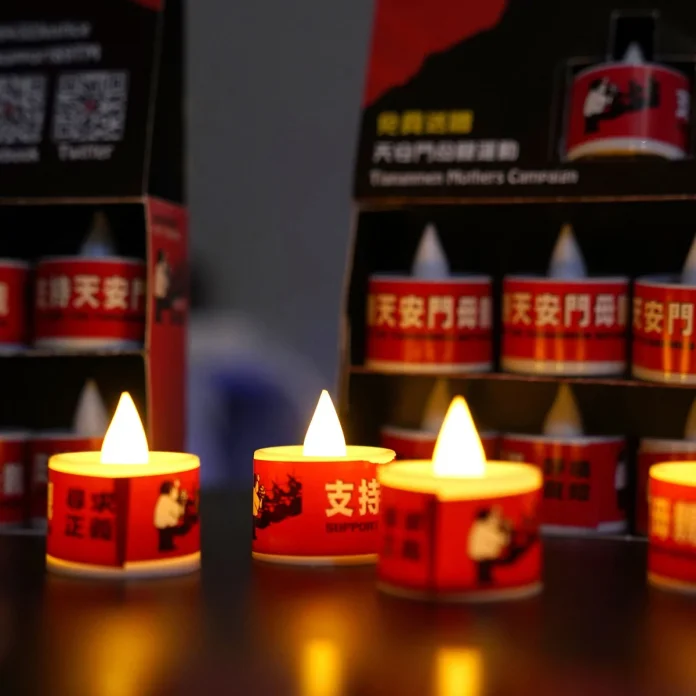For most Chinese, the 36th anniversary of a bloody crackdown that ended pro-democracy protests in China passed like any other weekday. And that’s just how the ruling Communist Party wants it.
Security was tight Wednesday around Beijing’s Tiananmen Square, where weeks of student-led protests shook the party in 1989. Under then-leader Deng Xiaoping, the military was sent in to end the protest on the night of June 3-4. Using live ammunition, soldiers forced their way through crowds that tried to block them from reaching the square. Hundreds and possibly thousands of people were killed, including dozens of soldiers.
The party has tried, with some success, to erase what it calls the “political turmoil” of 1989 from the collective memory. It bans any public commemoration or mention of the June 4 crackdown, scrubbing references from the internet.
In recent years, that ban has been extended to Hong Kong, where a once-massive annual candlelight vigil is no longer permitted. Police said they brought 10 people on suspicion of breaching public peace to a police station for investigation. Three were still detained late Wednesday, while the rest were allowed to leave. Police also arrested a woman for failing to show her identity document and a man for obstructing police officers from performing their duties.
It is only in Taiwan, a self-governing island that is claimed by China but runs its own affairs, that large June 4 gatherings can still take place.
The crackdown reinforced Communist Party control
Tiananmen Square is a vast space in the center of Beijing with monumental, communist-era buildings along two sides and the mausoleum of Mao Zedong, who founded the communist era in 1949, on the south end.
University students occupied this symbolically important site in the spring of 1989. Their calls for freedoms divided the party leadership. The decision to send in troops marked a decisive turning point in the evolution of modern China, keeping the party firmly in control as it loosened economic restrictions.
Chinese officials have said the country’s rapid economic development since then proves the decisions made at the time were correct.
“On the political turmoil that happened in the late 1980s, the Chinese government has already reached a clear conclusion,” Chinese Foreign Ministry spokesperson Lin Jian said Wednesday. He added that China would continue along its current path of what it calls “socialism with Chinese characteristics.”
Tiananmen Mothers, a group formed by relatives of the victims, made an annual online appeal to the government. Signed by 108 members, it called for an independent investigation into what happened on June 4, 1989, including a list of all who died. The group also demanded compensation for the families and a legal case against those responsible for the deaths.
The British and German Embassies in Beijing posted videos commemorating the anniversary on Weibo, a Chinese social media platform, but they were later taken down, presumably by censors. The Canadian and German Embassies displayed images of a single lit candle on large screens facing the main street.









































